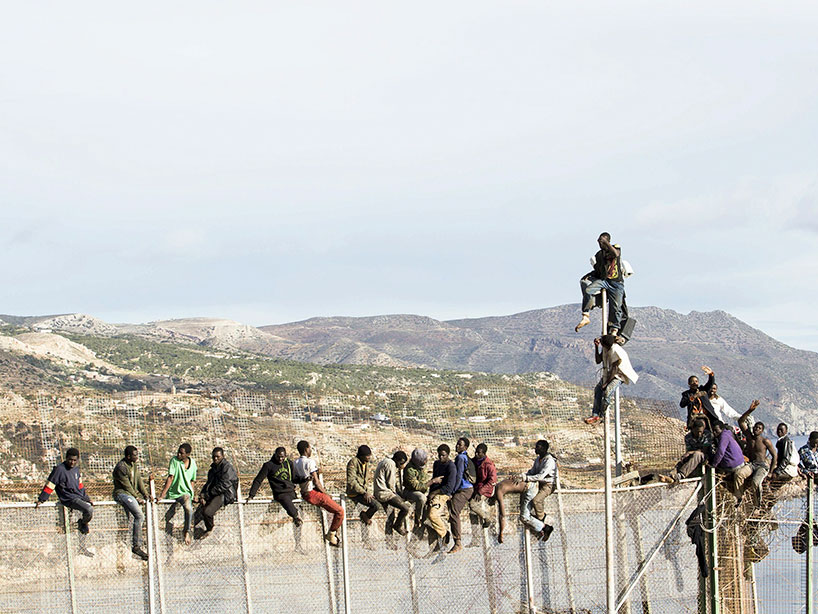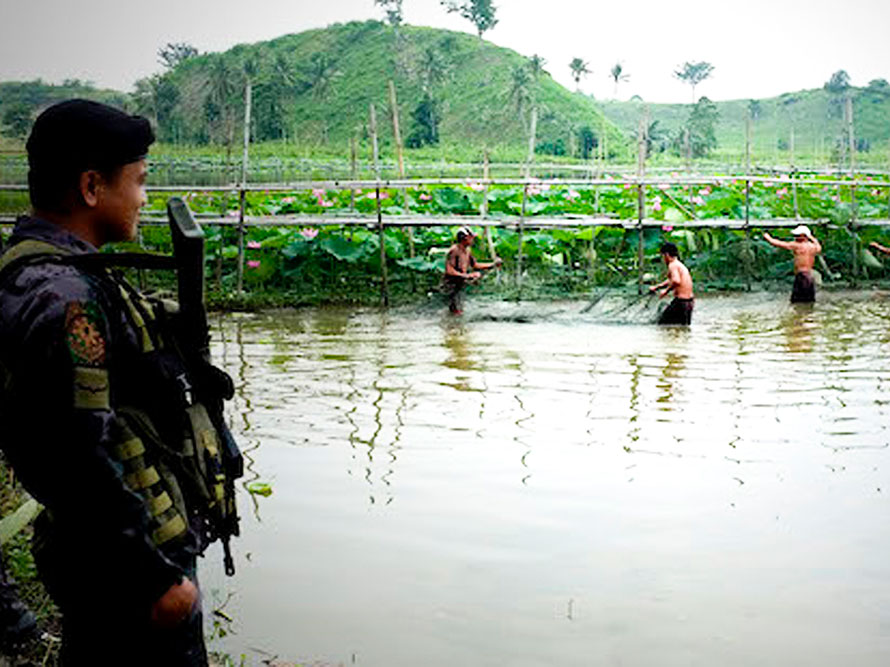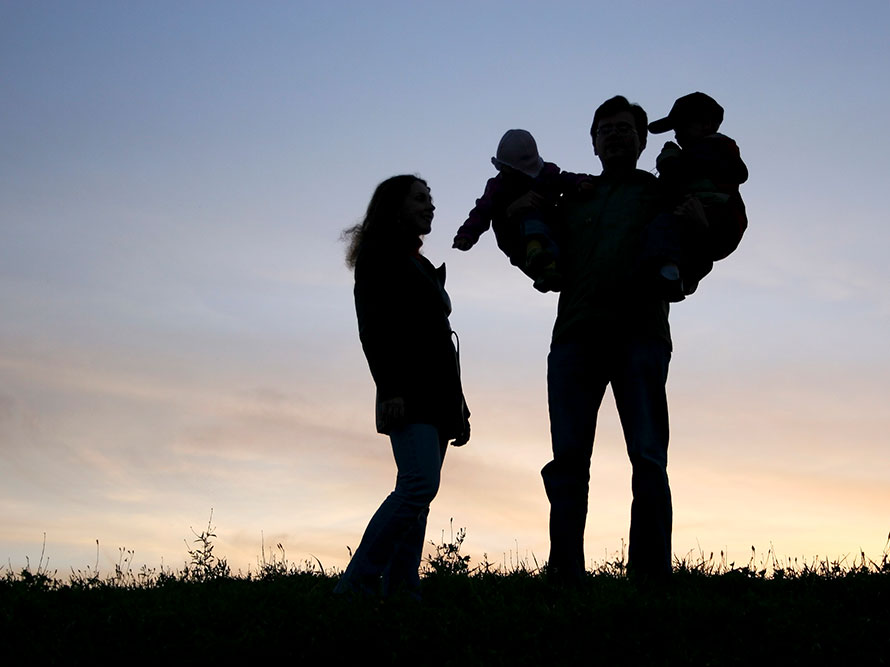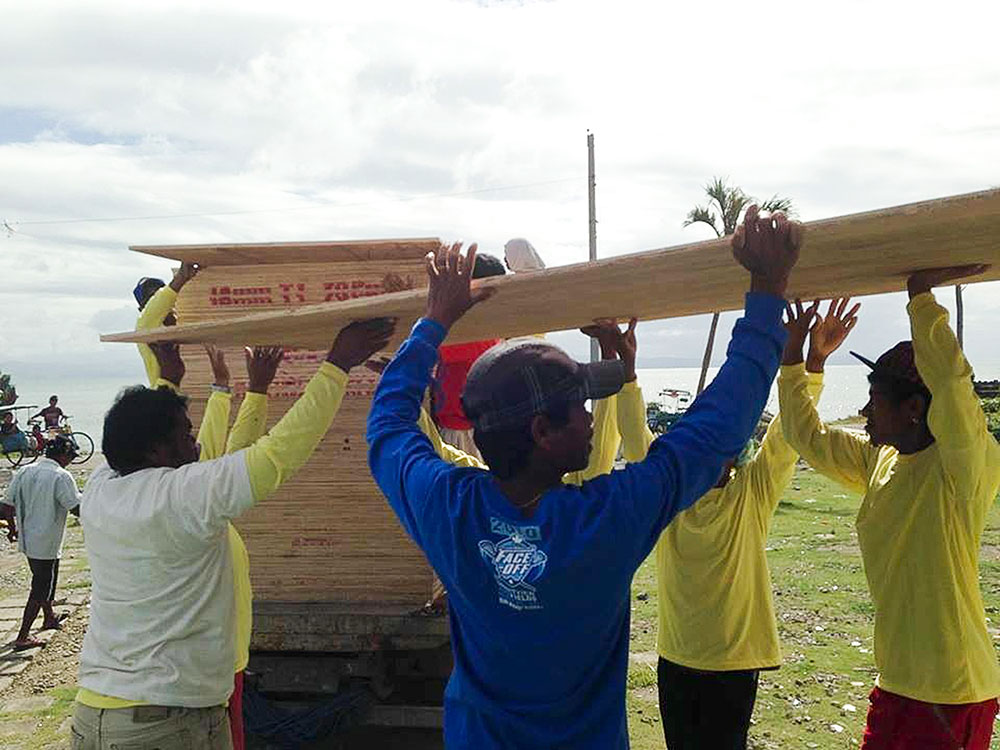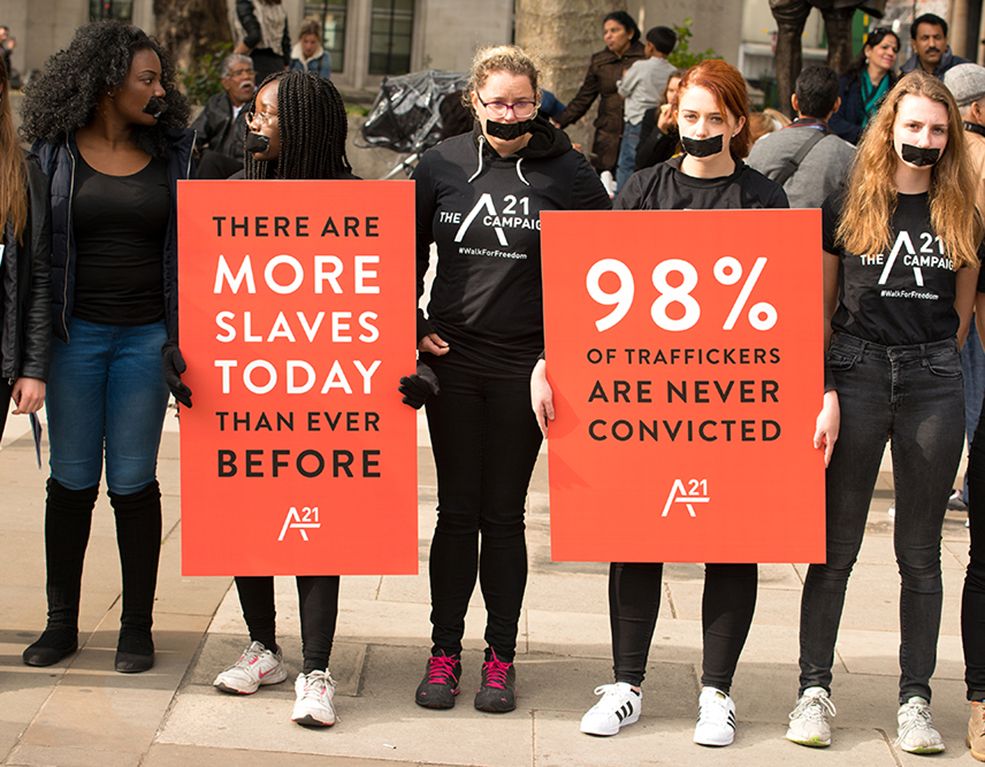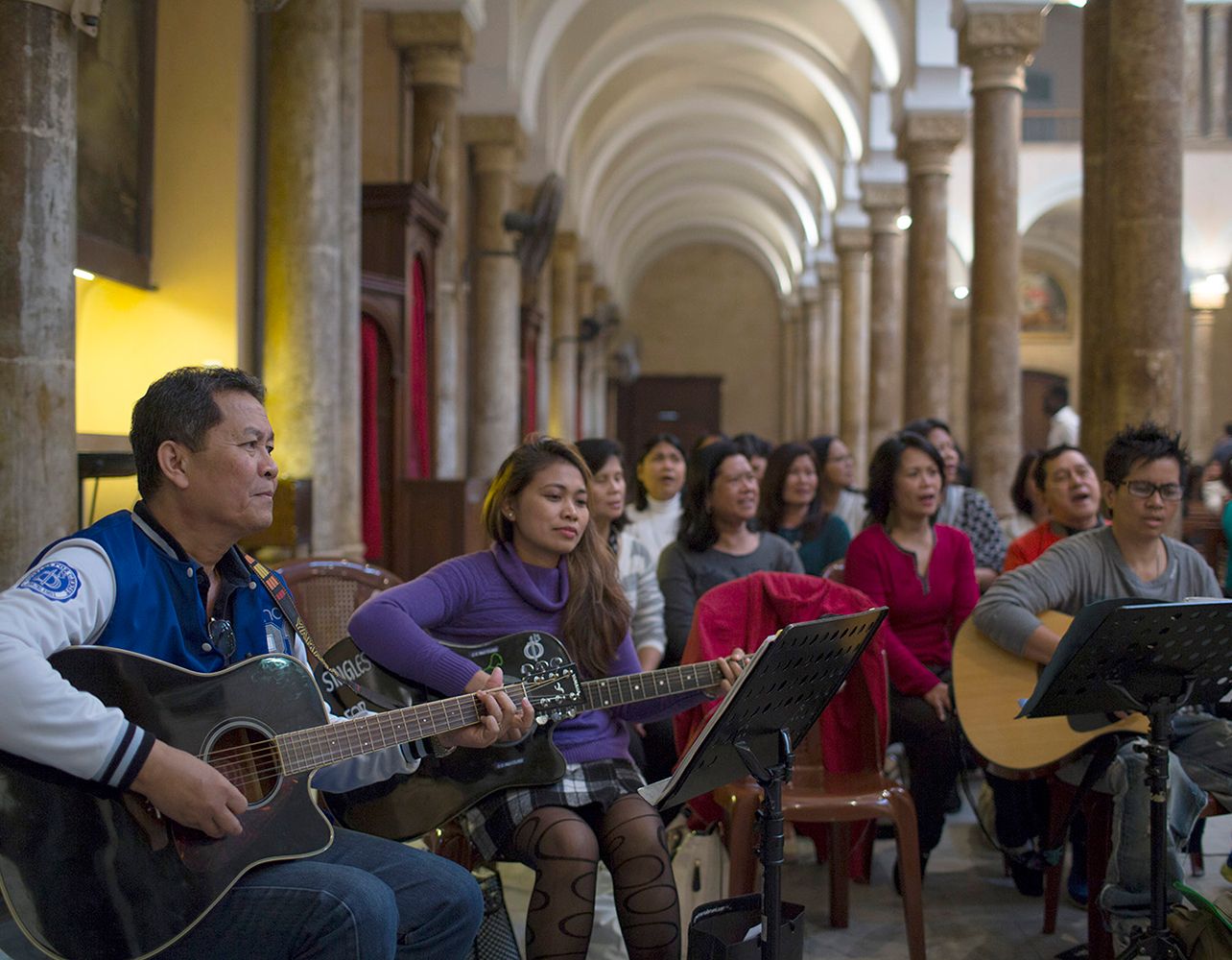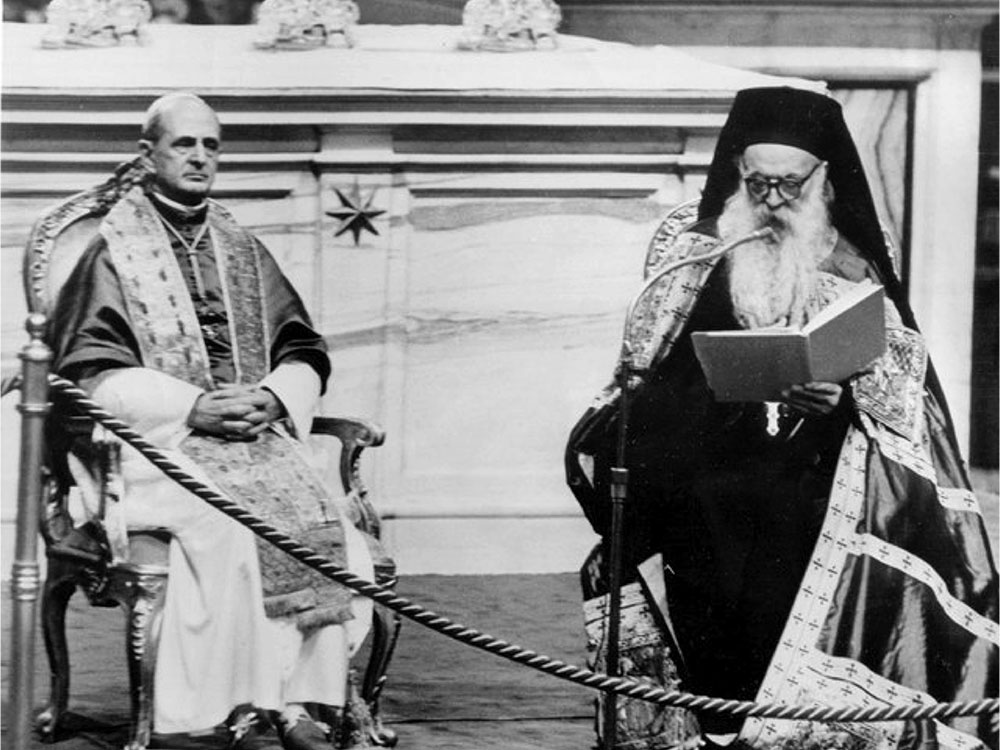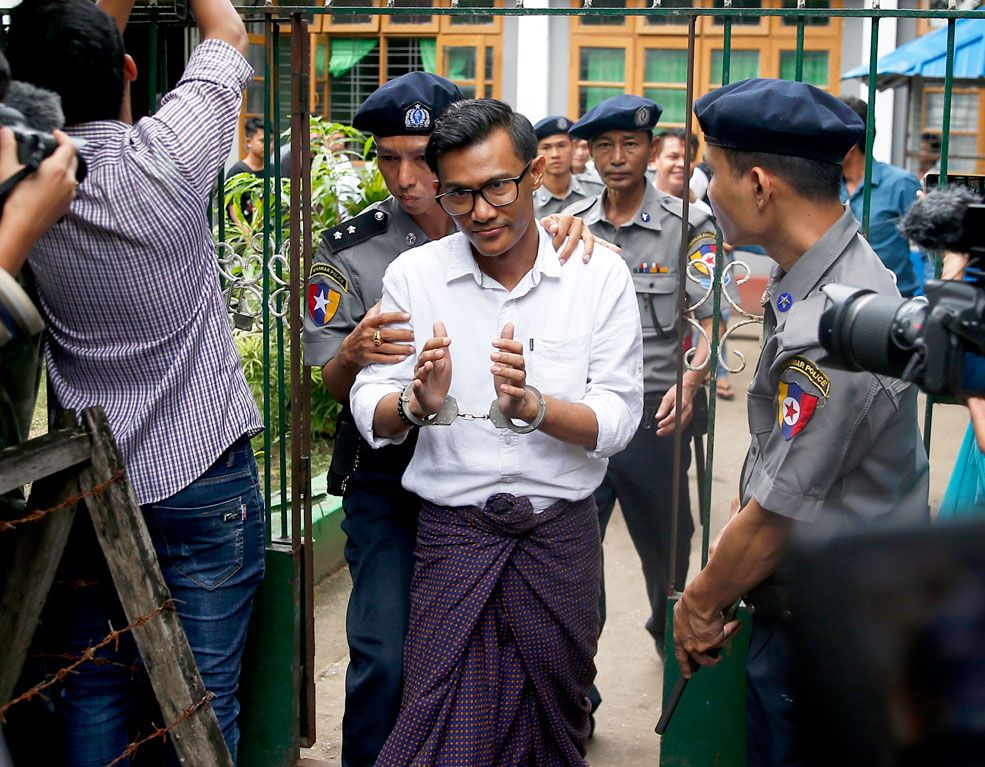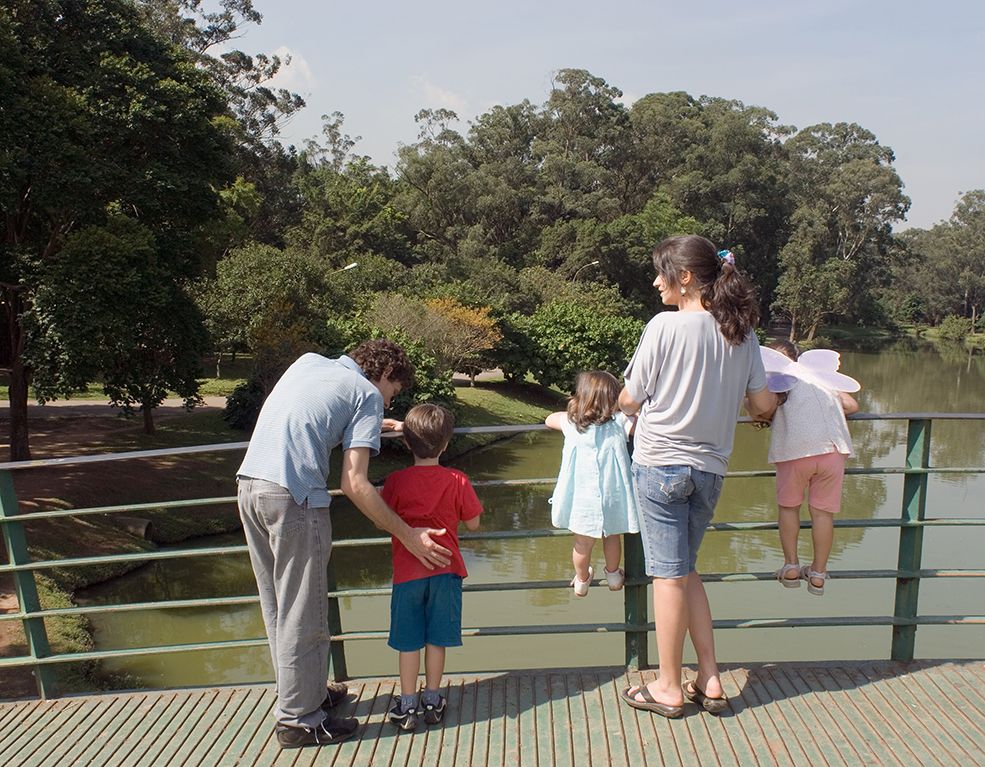Mapuordit mission has been your home. Here, you work as a doctor but also as a Missionary Brother. Does that make a difference in your work?
People understand very well the difference between us, missionaries, and the people from NGOs. It is clear to them that, NGOs come and go. They stay for short periods of time but we are here to stay with them. We, Comboni Missionaries, arrived here more than 100 years ago. People may not be so aware of our religious motivation as many of them are not Christians. Nonetheless, the continuity of our missionary service is very, very important to them. We, somehow, have become part of their community, not just outsiders doing good things. They regard us not as visitors but one with them. There is a bond of deeper trust that leads them to be more open to us.
Your work is focused on Mapuordit Hospital. Can you give us a brief background of this work?
Mapuordit Hospital was started in February 2002 at the request of the bishop of Rumbek Diocese to the Comboni Missionaries, during the war, to develop a health service that provides, at least, basic surgical services, particularly to pregnant mothers who needed cesarian section. The situation in the area of Rumbek was, then, terrible; there was not even one surgical center functioning – even outside the Diocese of Rumbek or hundreds of kilometers away. In case of an emergency, the only way to save the life of a mother was to call the Red Cross which would organize a plane from Kenya, more than 1.000 kms away, (two hours by plane), to collect the patient in Akot, an airstrip located 25kms from Mapuordit, and then, bring the patient for surgery in Kenya. Of course, patients, while on the way, may get serious complications or, worst, die. This arrangement, too, was very expensive and the outcome was not so good. Therefore, an alternative was to put up a simple tent where an operation can be done on the spot. The bishop got the support of Tarnala University, in Slovakia. An operation tent with some basic materials, plus nurses and doctors, were brought in. However, the bishop would like to have a missionary doctor, with some experience, who could organize the local staff. The greatest difficulty in establishing a hospital with an operation theatre here, during the time of war, was the lack of qualified South Sudanese staff. To import all the staff needed from Kenya or Uganda was terribly expensive. Moreover, the scenario was still one of war with a lot of insecurities.
Did you take the risk?
Yes. I counted on my experience in Uganda, also a land of wars and social tragedies. I selected a few registered nurses and midwives in Uganda to come with me to Mapuordit. Then, we started training on-the-job auxiliary nurses, coming mostly from our secondary school. This was the initial move to provide some local assistance. Actually, when I was asked to choose the place to establish the hospital, I suggested Mapuordit because it is the only place in the Diocese of Rumbek with a secondary school that could provide people for training on the different tasks in the hospital. Some of these young men and women, even without finishing their secondary school, were given jobs in the hospital.
When was the training process started?
After the place had been decided upon, the first 20 young men and women trainees started their formation in June 2001. With the collaboration of CRS (Catholic Relief Services) from the United States, which was paying for the qualified nurses, we started a six-month nursing crash course. In 2002, I, together with this group of 20, started a hospital, under the huts. We set up an operation tent and we were able to perform the first operation in March of the same year. There was no more need to refer emergency cases to Kenya. We were already capable of answering basic emergencies on the spot. During the first year alone, we made 300 operations. At present, we are doing 1,200 operations a year.
After having organized your own staff, you needed funds to run the hospital and also to get all the drugs needed for the patients. How did you manage?
We were very lucky because this hospital was practically the only one operating after the war. So, when the peace agreement was reached in 2005, the new government of South Sudan started setting up, in 2006, the Ministry of Health which has a specific budget and took the commitment to help us with 2/3 of the salaries of the staff. The Diocese, on the other hand, committed to pay for the rest. This was up to 2007, before the time the government decided to pay 100% of the salaries. Now, we have 58 South Sudanese staff fully paid by the government. This is a great blessing and a great sign of hope for the people here. The specialized nurses and doctors, however, are paid by the Comboni Missionaries and by benefactors who support us in this project.
How much can you afford to pay for a salary?
A one-year salary of a specialized staff can go as high as $8,000 (including food, transportation, etc). So, different solidarity groups generously help us pay for these specialized people who help run the hospital. Some groups have been supporting us for 12 years without interruption and we are very grateful to them. We have also some Catholic organizations that are very concerned with maternal care. South Sudan has now the highest maternal mortality rate in the world. A minimum of 2,200 mothers die out of 100,000 who give birth. When donors understand this reality, it becomes easier for them to commit to pay the salary of a midwife.
The initial concern to assist the mothers has now spread to many other areas of concern, one of which is AIDS. What is the situation at the moment?
Unfortunately, HIV has spread tremendously in the past 3 or 4 years and, reportedly, it still is in Kenya and Uganda. So, when I came here, I was expecting to find many cases of HIV, too. But, to my astonishment, out of the 200 patients for operation tested, only one was HIV positive. That was in 2002. This could be due to the war that isolated people from the virus in. But, in 2005, when peace reigned, we started seeing a terrible growth; every year the number of cases doubled. Many of the returnees from Uganda, Kenya and other countries brought the virus in. The soldiers and the traders, who moved a lot, contributed too, to the wide spread of the virus. In 2006, we tested 10 or 15 positive cases only but now we are having two to three hundred positive cases per year. Last month alone, we got 43 cases. Of course, the health education in this country is practically zero. The level of illiteracy is 80%. In this situation, to make a person understand what HIV is and its risks, is almost an impossible task.
In this situation, the isolation of these areas, would diminish the risk, wouldn’t it?
Yes, of course, but even when you tell the patient about HIV and try to educate him/her for prevention, the illiteracy is so high that it is very difficult for people to understand and believe. They don’t follow instructions; no one takes necessary precautions not to receive or to spread the disease. Usually, they come to ask for help when they are already very sick. So, in most cases, it is already too late. Also, we can only provide some drugs, free of charge. We are now a point of reference for anti-retroviral therapy which works if the disease is not yet at the last stage. Since we started the anti-retroviral center, we have placed 250 patients under this therapy, out of which 40 have died. The rest are still undergoing therapy and doing fine.
What is the area coverage of Mapuordit Hospital?
If it concerns common diseases, we cover those within 100 kms from the hospital. However, for HIV treatment and operations, patients come from as far as two or three hundred kms away. The distance makes it very difficult for them to come every three months to collect the drugs they need.
What are the other common diseases around?
Malaria is the leading cause of death here, particularly during the rainy season and especially among the children. Every year, we lose 30 or 40 children to malaria. Aside from malaria, the other diseases are pneumonia, hepatitis, diarrhea and others that need surgical interventions. Of course, many women are in need of assistance during child delivery.
I know you have a special concern to form the staff to guarantee the normal running of the hospital and to ensure its good service to the patients. What are you presently doing along this line?
This has been our main priority from the beginning: how to form well our local staff. When we began in 2004, therefore, with Italy’s collaboration, we focused on the formation of nurses. This school was only formally approved in 2008 but, as of now, we already have three batches of graduate nurses.
The idea is not only to form staff who will keep the hospital going but also to qualify nurses who can serve in outstations as well, is that right?
There are two levels of formation. The school receives candidates selected from all over South Sudan. It is a state school that provides official training, recognized even outside the country. But, the needs around cannot wait for two years to get qualified nurses. So, we give auxiliary nurses on-the-job training. They used to stay with us for three months but now we are implementing a six-month training instead. This course equips them with the very basics. The trainees are young people just out of secondary school, sent to us by different hospitals around the country, to receive basic training as auxiliary nurses. This qualification is not officially recognized but, when they go back to their own places, the need for their services is so great that they get work immediately. I can say that, up to now, 80 or even 90% of the nurses working in hospitals of South Sudan are auxiliary nurses.
After this journey of more than 12 years, how would you define Mapuordit Hospital now?
Thanks be to God, it is now, a well-organized structure, recognized by the government of Juba. There is still much room for growth. We are in need of a good administrator, good Sudanese doctors and senior nurses and we are working on it. We have several people undergoing training. The other challenge is to organize a Board of Governors, where representations from the diocese and the people are guaranteed. We want to make the hospital more sustainable, so that, even without my permanent presence here, so that it may continue serving the people.







